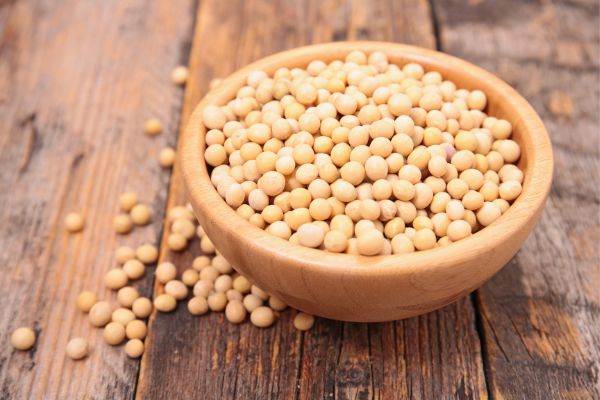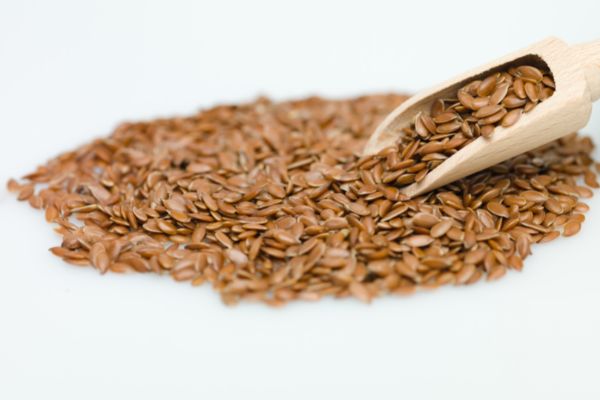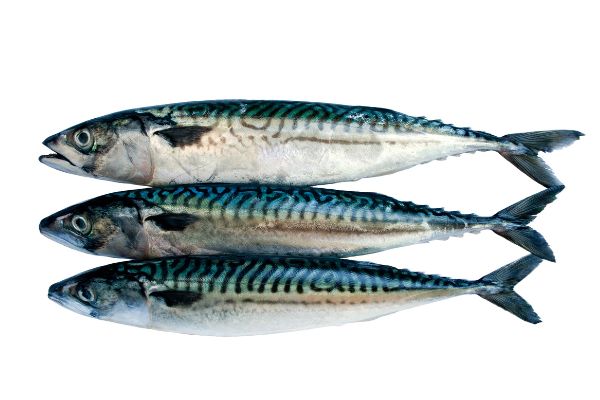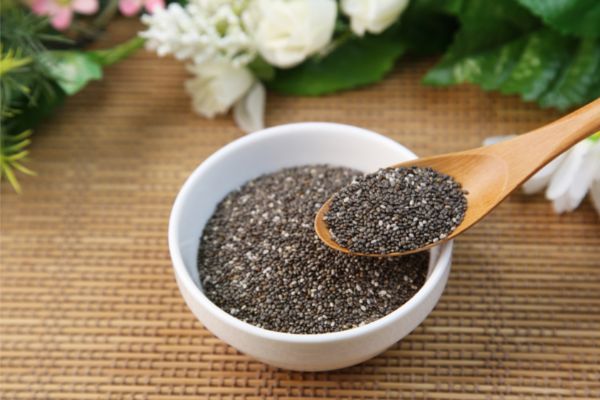If you are a fitness freak or are into playing sports, you’re probably aware of protein benefits. It helps build muscle mass, prevents muscle breakdown, and stimulates muscle regeneration. But have you heard about the benefits of consuming protein with omega-3 fatty acids?
Some experts believe that omega-3 with proteins provides a host of benefits for strength athletes. It decreases muscular pain and speeds up recovery time after an exercise.
The science behind this is fascinating, so let’s go through some of the reported benefits of consuming protein and omega-3 fatty acids.
Protein and Omega 3 Fatty acids –
Nutrition is integral to health, and several nutrient combinations may be beneficial to our physical and mental well-being along with helping us look fit. Proteins and fats (omega 3 fatty acids) are two essential nutrients required for the healthy survival of humans.
Proteins and dietary fats are the basic building blocks of our body. They are consumed to meet the requirements of our body for its normal metabolism. No matter what type of diet you follow or what workout you do, your body cannot grow if the essential nutrients and protein content are less.
Proteins have their primary function to supply amino acids. Amino acids help in building muscle mass and prevent their breakdown. Some proteins can be taken in supplements like whey protein. Otherwise, these amino acids can be obtained through food sources like eggs, chicken, and fish.
Fats are also an essential part of nutrition which helps in the proper functioning of health. Omega 3 fatty acids are essential for the human body as they are referred to as good fats. They help reduce inflammation and enhance muscle synthesis. Studies indicate that eicosapentaenoic acid (EPA) and docosahexaenoic acid (DHA) can help in improving the anabolism of muscles.
This process involves increased muscle protein synthesis and reduced muscle protein breakdown, which offers muscle hypertrophy. This leads to an overall increase in lean muscle mass, which results in improved muscle strength.
Omega-3 fatty acids are good fats found in plants and fish. They are sometimes called “essential fats” because your body needs them for good health but can’t make them. Alpha-linolenic acid (ALA) is among the essential fats found in plants that aren’t used directly by the body.
It must be converted into longer-chain omega-3 fatty acids such as Eicosapentaenoic acid (EPA) and Docosahexaenoic acid (DHA). Therefore, you should take fish oil supplements or eat more fish to get these longer-chain omega-3s.
Benefits of omega-3 fatty acids-
Research suggests that omega-3 fatty acids can have many health benefits for the body and brain. Our ancestors probably consumed omega-3 fatty acid-rich diets because their food came directly from nature.
Continue reading to discover more about omega 3 and how it may help your health.
1. Reduces fat in the liver.
Research shows that omega-3 fatty acids can reduce fat in the liver. This leads to improved insulin sensitivity. It also reduces triglycerides and LDL cholesterol levels.
2. Boosts the health of your bones and joints.
As the benefits of omega-3 fatty acids continue to be discovered, many studies have shown that omega-3s can help improve bone and joint health.
3. Reduce the menstrual cramps.
Omega-3 fatty acids can alleviate menstrual pain in women. This can help relieve pain and reduce inflammation of the uterus, which may have a long-term impact on improving your fertility.
4. Develops the brain.
Omega-3 fatty acids are necessary for appropriate brain development and, as a result, for a healthy mind and overall well-being. Omega-3s can improve your mood and make you less susceptible to depression, making you less likely to suffer from anxiety.
5. Improves heart health.
Omega-3 fatty acids are healthy fat that is good at helping to reduce inflammation and can also help reduce your risk of heart disease.
6. Enhance the sleep quality.
Omega 3 fatty acids, found in fish oil, may help improve sleep quality. Study shows that people with insomnia supplemented with omega-3 slept better than those who took a placebo or the vitamin amantadine.
7. Regulates BP.
Omega-3 fatty acids have many health benefits; they are excellent at regulating blood pressure, helpful during pregnancy, and great for your skin.
8. Prevents cancer.
Among the most influential studies reveals fascinating findings on the importance of omega-3s in cancer prevention and prognosis.
Best omega-3 fatty acids and protein Sources-
Walnuts
Walnuts are healthy and energizing. Most health benefits are their fatty acid content, high potassium content, and high fiber content. They also contain manganese, copper, vitamin E, and essential plant compounds.
Note:- 2,570 milligrams of omega 3 fatty acids are present in around 14 walnut halves.
Anchovies
Anchovies are a type of fish ( technically, they are a small herring species). They are used in many types of food and were often pressed into service to flavor sauces in the past. It was because of their strong taste which was believed to mask the taste of spoiled or rancid oils.
Along with omega-3, niacin and selenium are abundant in anchovies, and boned anchovies are rich in calcium.
Salmon
Most individuals know that fatty fish, such as salmon should be consumed. It’s packed with nutrients and high-quality protein that can do amazing things for your body.
Salmon is among the most nutritious foods in the world. It contains an impressive amount of vitamin D, omega-3 fats, selenium, and B vitamins.
Soya beans
Soybeans are high in fiber and various other minerals such as vitamin K, magnesium, and potassium. But, they’re also very high in omega-6 fatty acids.
Note:- According to studies, consuming too much omega-6 can cause inflammation.
Flaxseeds
Flax seeds can be a significant part of one’s everyday diet. Flax seeds are used to make oil and are often ground or sold in their complete form. The seeds are high in fiber and many different vitamins and minerals. They contain high omega-3 fatty acids, which are excellent for human health.
Oysters
Shellfish are among the healthiest food groups you can eat. They’ve been eaten as an appetizer or a full meal for thousands of years, and they’ll likely continue to be appreciated for many more.
Many shellfish are rich in zinc, copper, and B12. Oysters happen to be the richest source of each of these nutrients.
Mackerel
Mackerel are tiny, fatty fish most commonly smoked and served as whole filets. They’re incredibly rich in vitamin B12 and selenium. While there are several different varieties of mackerel, Atlantic mackerel is most commonly consumed in Western countries.
Chia seeds
Chia seeds are super nutritious and healthy. While the USDA recommends adults eat approximately 53 grams of protein each day, many folks fall short on this count — almost 40% more than they need. If you’re one of these people, adding chia seeds to your diet can help you reach your recommended daily intake.
Frequently asked questions
Question 1:- What is the best way to consume omega-3 supplements?
Ans:- It is generally recommended that fatty fish be consumed at least twice a week. But if you don’t consume fish or seafood or don’t want to eat fish, you can take a supplement instead. This will ensure that you are receiving optimal amounts of omega-3s.
Question 2:- How long will omega-3 take to start working?
Ans:- Although it may take several months to reap the full benefits of omega-3 supplements. Improvements with proper consumption are often noticed within six weeks to six months.
Question 3:- Is it better to take omega-3 pre-workout or post-workout?
Ans:- Taking fish oil omega-3s pre-workout is an effective way to add more healthy fats to your diet and increase muscle growth over time.
The bottom line
As a result of this study, it is concluded that taking protein with omega-3 fatty acids has many benefits. It decreases muscle pain and inflammation, increases energy, and helps to fight against cardiovascular diseases. It also improves the heart’s health in the long run.
You should consider taking protein with omega-3 fatty acids before your workouts if you exercise regularly. Start slowly and heed your body if you’ve never tried it before. It may take some adjustment time, but you’ll be more robust and healthier.














